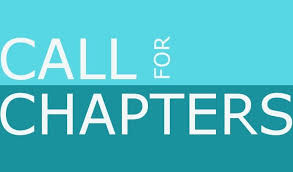This book features important commercial aspects of IPR. Intellectual property is a growing concern for the development and competitiveness of developing economies. This competitiveness engages major commercial dimensions like:
- IP valuation,
- IP management,
- IP consultation,
- inventor compensation,
- Licensing agreements,
- Patent abuse,
- Enforcement,
- Infringement,
- Mediation, etc.
At the same time, innovation throws complex challenges towards respecting and protecting the commercial aspects of IP. The pace of innovation has accelerated significantly in recent decades which prompts revisiting areas like IP management and policy framework.
The marketing strategy of IP for the economic development of an individual as well as the country requires a boost-up so that it can address pivotal challenges. Effective Technology Transfer in the IP regime is dependent largely upon the progress made in the design and governance of the national innovation system.
Editors
- Dr. Pinaki Ghosh
MHRD IP Chair, WBNUJS - Dr. Shambhu Prasad Chakrabarty
Head and Research Fellow
CRSGPP, WBNUJS - Dr. Jayanta Ghosh
Research Fellow
CRSGPP, WBNUJS
Publisher
Thomson Reuters
Themes
- An inclusive gain for an exclusive contribution of IPR
- Micro Economic Theory and IPR
- Sovereign IP
- Indigenous Knowledge Commercialization: Journey from TK & TCE to GI
- Reward and Rebate: Economics of IP promotion for social welfare
Target Audience
Academic research institutions involved in research of intellectual property. With the advancement of technology, the developing nations are facing the challenges of societal need and trying to catch-hold of the IP by laws and policy, hence this manuscript will be a pathfinder to unravel new laws and policies. It will also highlight the opportunities for the researchers to explore the contemporary challenges on the commercialization of IP.
Submission Guidelines
The research linked with the emerging issues, which has two main prongs:
- Fundamental Research Prong: Determining the current definition and popular understanding of the term ‘Commercialization of Intellectual Property’ is inclusive and culturally sensitive. In other words, whether the definition of digitally linked with the different emerging areas of research.
Please Note: The language used here has been deliberately kept as simple, engaging, and non-legal/technical as possible in light of the large diversity of disciplinary backgrounds and age and experience groups. The final contributions will need to use more discipline-specific terminology and a neutral academic writing style.
- Practical Research Prong: Identifying ethical issues inherent in current and emerging innovations in the IP sector. You are welcome and invited to think about and address these two research prongs in creative ways and not necessarily follow the chain of thought followed in the broad areas mentioned above.
Other
- In order to keep things somewhat streamlined despite the emphasis on diversity of approaches and disciplines, you are encouraged to look at these research prongs to formulate, from the perspective of the broad points.
- As many of you have already had expertise in different focus points which is closely linked with the broad topic.
- At the same time, requested to you would prefer to write more generally related to a broader theme, namely, “Inclusive wealth generation through IP commercialization”, which is also perfectly fine.
Please pay special attention to the following points when compiling your contributions:
- You are welcome to submit just a full-blown article for consideration by the editors.
However, even in full-blown articles, if the starting or central theme is linked to a real-life example (e.g. a true case study or a real-life news item), it would be very much appreciated as it will then link up nicely to the broad research approach adopted. - Please do clearly outline (preferably in the introductory segment of your contribution), how your article links up to either the ‘Fundamental/Practical Research Prong’ described above OR to the broader theme, namely “Inclusive wealth generation through IP commercialization”.
- If the topic on which you are writing does not relate to law, please also suggest the names of two referees (unknown to you personally) who are experts in the field/discipline to which your paper belongs.
This is important to get the papers peer-reviewed by appropriate people, and for you to be able to improve your writing (if the editors so recommend). - Finally, as the aim of the book is to provide concrete guidance to policymakers at the highest level, you are requested to make concrete recommendations, justifiable at least within the specific context of your research that can be given to policy/lawmakers who are involved with designing laws or policies associated with any of the broad themes.
Formatting Guidelines
- As mentioned, please use a neutral academic writing style and avoid writing styles that are closer to journalistic approaches when preparing your contribution to the book.
- (Please note, however, that in your blog posts, the journalistic approach may be more effective in winning public interest and engagement. However, providing links at appropriate places even in blog posts, as a means of citing relevant literature is suggested).
- Also, it is requested that all contributions to be considered for the book shall follow the following style and page limit:
- Articles: 15-25 typed pages or minimum 6000 words (single spacing) including all footnotes,
- 12 font size, times new roman (footnotes can be in font size 10 without spacing)
- Please use footnotes, not endnotes, and use OSCOLA referencing style as the guide for footnoting.
- Abstract: Maximum 350 words with 5 keywords.
Submission
- Word Limit: Minimum 6000 words
- All submissions to be sent to iprchair@nujs.edu
Submission Deadline
March 31, 2021
 428
428


2 comments
Comments are closed.